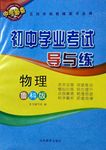题目内容
My destination is the River Walk, one of the most popular places in all of Texas. In the first half of 20th century, to control flooding, the city fathers began redirecting the San Antonio River. They built a network of canals that pass through the downtown area. At nearly every street corner, stairs lead down to walkways on both sides of the canals.
The River Walk is linked with cafes, bars, shops --- and, of course, plenty of bridges. You can easily cross over to the other side without having to return to the street. It’s a constant party along the River Walk, with music and festivals throughout the year. The Mud Festival, for example, takes place each January, when the city empties this section of the river to clean it out. That’s when the Mud King and Mud Queen are crowned.
No visit to Texas would be complete without seeing a rodeo --- another aspect of this part of the country that is completely foreign to someone from New England. The announcer walks on stage and gets the crowd excited with talk about the courageous cowboys who’ll be performing. While he’s talking, a band plays sad songs about love gone wrong.
Suddenly the announcer calls for silence. He takes off his tall hat and asks us to join him in prayer. We pray for the cowboys who are, we are told, risking their lives to entertain us, as well as for the bulls and other animals taking part in the shows. We pray for the tourists who are visiting. The rodeo gets going and the fun begins.
Our prayers for the cowboys and animals are answered, and nobody gets hurt. But as we walk over to the cowboy dance hall after the show to enjoy a Texas-size barbecue, it’s clear that not enough prayers were said for the bulls’ less athletic relatives --- the ones not chosen for rodeo work. They’ll be our meal. It seems that moving too slowly has its disadvantages, too.
What do you know about the River Walk from the article?
A. People hold parties to celebrate festivals here every day.
B. It refers to the sidewalks on either side of this section of the San Antonio River.
C. There are many bridges that connect the River Walk and the Main Street.
D. Stairs link the River Walk to cafes, bars and shops in the street.
Which of the following statements about Mud festival is NOT true?
A. Mud Festival dates back to the first half of 20th century.
B. Mud Festival is held in January every year.
C. Mud King and Mud Queen are chosen in the festival
D. Mud Festival is celebrated to clear the mud of the San Antonio River.
What does the underlined word “rodeo” refer to?
A. One aspect of the American country life. B. The concert given by a band.
C. The cowboys’ performance. D. The grand Texas-size barbecue.
Why do some bulls become the visitors’ meal?
A. Because they do not run as fast as those taking part in the shows.
B. Because the visitors do not pray enough for them before the shows.
C. Because they lose the competition to their relatives in the shows.
D. Because they are only beef cattle intended as people’s food.
Which of the following words can NOT be used to describe the writer’s mood?
A. light-hearted B. excited C. anxious D. humorous
【小题1】B
【小题2】A
【小题3】C
【小题4】D
【小题5】C
解析:
略

 初中学业考试导与练系列答案
初中学业考试导与练系列答案